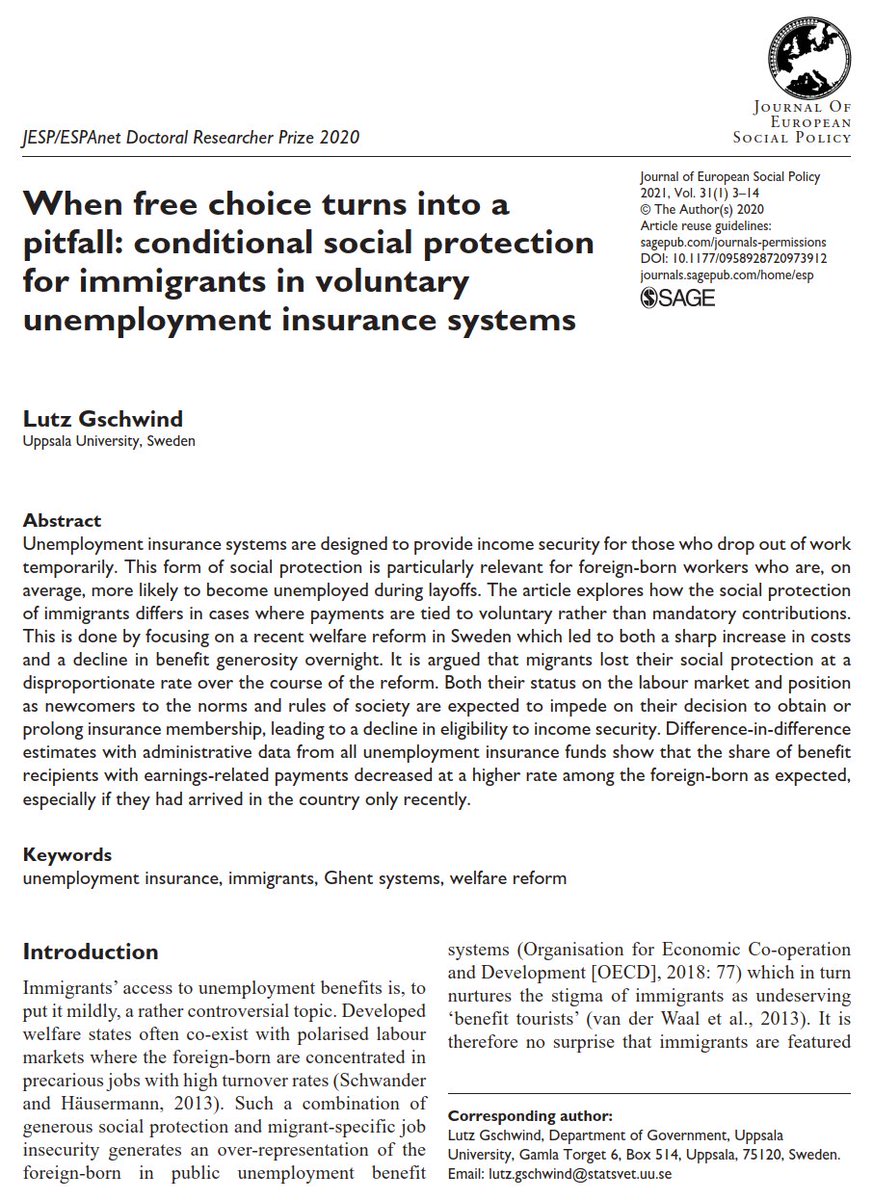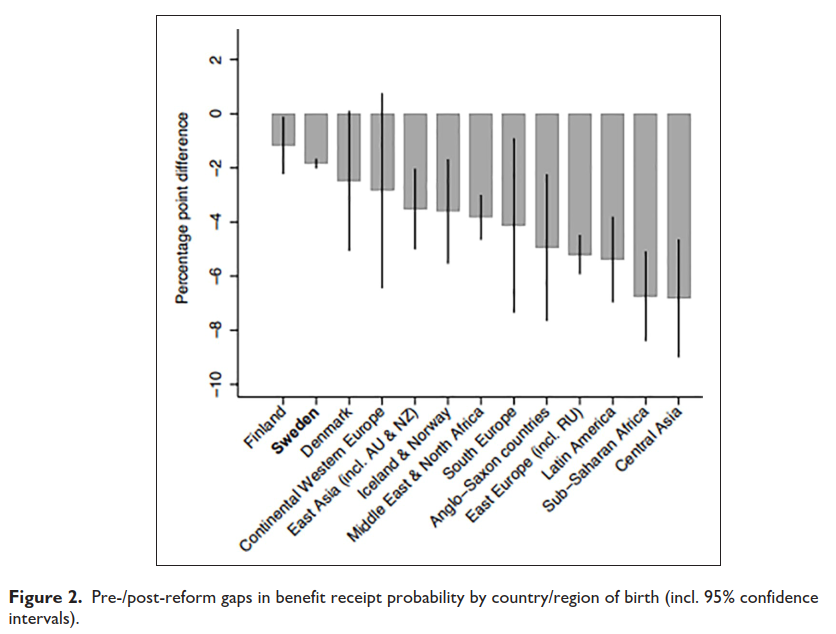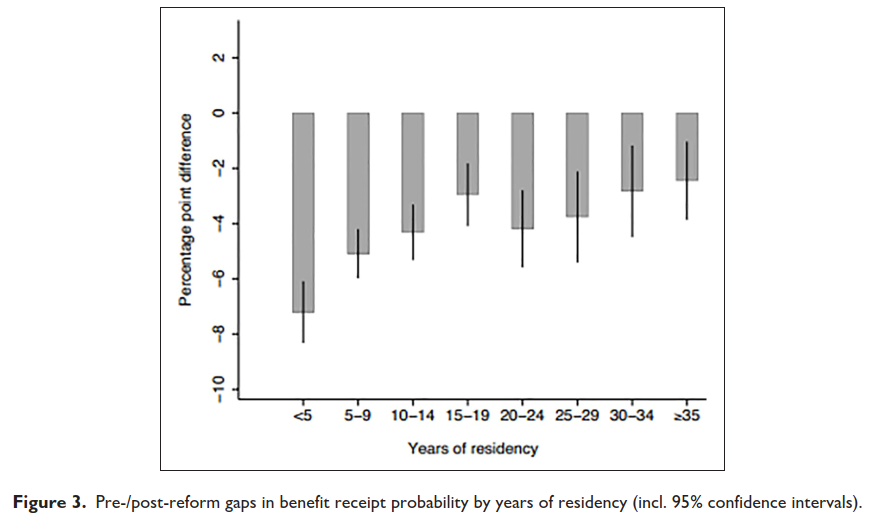New article on the social protection of immigrants in voluntary unemployment insurance systems, published (OA) in the Journal of European Social Policy. The study received the 2020 Doctoral Research Prize of ESPAnet and JESP. https://journals.sagepub.com/doi/full/10.1177/0958928720973912. A  ...
...
 ...
...
Unemployment benefits in DK, FI and SE consist of work-tested flat-rate payments as a basic coverage for all and a separate system of earnings-related benefits based on voluntary insurance. The study investigates implications of this setup for the social protection of immigrants.
A recent reform of the Swedish system triggered an overnight rise in membership fees for the earnings-related component on 01 Jan 2007. The effect of this sudden change on the distribution of payments studied with help of a difference-in-differences approach and register data.
Findings of the study show that the share of benefit recipients with earnings-related payments dropped disproportionately among foreign-born immigrants. The largest effect could be detected for those who arrived in the country only recently and for non-European migrants.
The results are explained both with economic incentives and underlying social norms of the system. Immigrants are clustered in low-income sectors. Drop-out rates have been particularly high in this context, most likely due to the small marginal benefit of contributory payments
However, unemployment insurance membership is also an established norm in SE and thus subject to socialisation. This helps explaining why the pattern by country of birth and length of residency remains even if individuals with a similar labour market status are compared.
The study shows how welfare reforms can have indirect negative consequences for the social protection of immigrants, even in countries with otherwise generous welfare systems and inclusive incorporation regimes.
It also supports the argument that studies on the distributive effects of social policies in times of large-scale migration should to take both economic incentives and social norms into account.
All analyses were conducted in 2019 in cooperation with @IFAU_SE. A huge thanks to everyone at @UU_PoliSci, @IFAU_SE, @JournalESP and ESPAnet who provided comments on the paper!

 Read on Twitter
Read on Twitter




